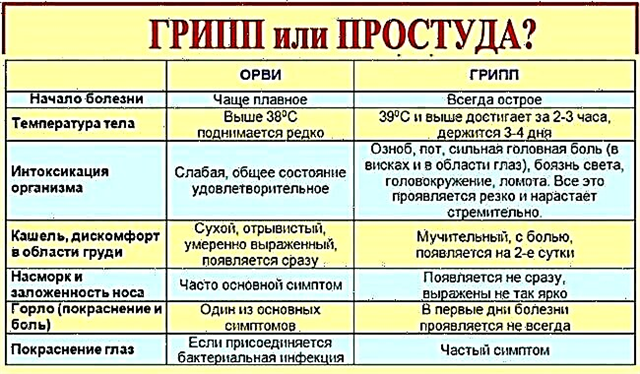Antibiotic ear drops are powerful medications that can only be used as directed by your doctor. And not only because each of them has a number of contraindications. Different drugs affect different types of microorganisms. And it is impossible to choose the right medicine without a series of preliminary tests.
When and how to apply
 In most cases, drops in the ear with an antibiotic are prescribed for acute and purulent otitis media, when there is a need to very quickly stop the inflammatory process and destroy pathogenic microorganisms. Also, drugs in this group are prescribed in the postoperative period and after middle ear injuries to prevent infection.
In most cases, drops in the ear with an antibiotic are prescribed for acute and purulent otitis media, when there is a need to very quickly stop the inflammatory process and destroy pathogenic microorganisms. Also, drugs in this group are prescribed in the postoperative period and after middle ear injuries to prevent infection.
Antibiotic drops in the ear should be used strictly in accordance with the doctor's prescriptions and instructions for use. In some cases, it is recommended to bury the agent, and put it in the ear on gauze turundas. Others cannot be used in this way - you can cause severe burns and irritation.
Antibiotic overdose tends to cause a number of very unpleasant side effects:
- nausea and vomiting;
- severe dizziness
- headache;
- allergic reactions.
It is equally important to complete the full course of treatment, since the initial disappearance of symptoms does not mean complete recovery.
 If you independently cancel the drug earlier than the period indicated by the doctor, the disease may return. And in this case, it will be more difficult to cure it, since pathogens quickly develop drug resistance.
If you independently cancel the drug earlier than the period indicated by the doctor, the disease may return. And in this case, it will be more difficult to cure it, since pathogens quickly develop drug resistance.
In order to choose the most effective drug for a particular patient, a good doctor always prescribes an analysis of the ear microflora. It allows you to accurately determine which microorganisms led to the development of the inflammatory process, and then prescribe drops in the ears with a narrowly targeted antibiotic. Such a trip helps to cure the disease very quickly, while minimally destroying the natural microflora.
Effective drops
Below is a comparison chart that compiles the most effective antibiotic ear drops. Depending on the active substance, they differ in effectiveness and breadth of the spectrum of action. In addition, only a few drops in the ear contain anesthetic components, while most are used in combination with other drugs.
| Name | Active in | pros | Minuses | Price, rub. | |
| 1 | "Otofa" | Rifamycin. | The broadest spectrum of action, the possibility of using perforation of the tympanic membrane. | There are no analgesic and anti-inflammatory components, it is effective in combination with other drugs. | From 280. |
| 2 | "Normax" | Nnorfloxacin. | Fast-acting, effective against most pathogenic microorganisms, hypoallergenic. | There are many contraindications: hepatic and renal failure, circulatory disorders, epilepsy, pregnancy; there are no analgesic and anti-inflammatory components. | From 120. |
| 3 | "Candibiotic" | Chloramphemicol, clotrimazole, beclomethasone diprionate. | Actively affects not only bacteria, but also fungi, high performance. | Often causes allergic reactions, is categorically contraindicated in children under 6 years of age and pregnant women. | From 245. |
| 4 | "Sofradex" | Framecitin, gramicidin, dexamethasone. | Quickly relieves inflammation, eliminates eczema, copes with purulent otitis media. | High probability of allergic reactions, contraindicated in case of damage to the tympanic membrane, is prescribed with caution to children. | From 190. |
| 5 | "Otinum" | Choline salicylate. | Excellent antifungal and antibacterial effect, quickly relieves inflammation, helps soften sulfur plug. | Often causes an allergic reaction, is prohibited in case of perforation of the eardrum and during pregnancy. | From 192. |
| 6 | Otipax | Phenazone, lidocaine. | Has a weak anti-inflammatory effect and a strong analgesic effect, can be prescribed to pregnant women and young children. | There is no antibacterial component; allergy to lidocaine is possible. | From 257. |
| 7 | "Aurisan" | Decamethoxin. | It works against most microorganisms and fungi, has a strong anti-inflammatory effect. | Contains alcohol, may cause irritation, itching, flaking of the skin; not prescribed during pregnancy. | From 210. |
| 8 | "Fugentin" | Gentamicin, fusidin. | Active antimicrobial action, effective against fungi and staphylococci. | May cause allergies, severe skin irritation, is not prescribed for damage to the eardrum. | From 160. |
| 9 | "Tsipromed" | Ciprofloxacin. | Strong antibacterial effect, is able to quickly cure purulent otitis media, relieves inflammation. | May cause burning, irritation, peeling of the skin, is not used in pregnancy and perforation of the eardrum. | From 25. |
| 10 | "Tsiprolet" | Ciprofloxacin, sodium chloride. | Quickly relieves inflammation, has a pronounced antibacterial effect, quickly heals wounds and ulcers. | Contraindicated in pregnancy, seizures, cerebrovascular accidents, can cause severe desquamation. | From 60. |
The table shows that each of the drugs has its own pros and cons, and some analogues differ significantly in price. In addition, when prescribing, it is necessary to take into account how the antibiotic contained in the ear drops interacts with other drugs that the patient may already be taking.
Therefore, this table is provided for informational purposes only. The final decision on the use of a particular drug should be made only by a doctor.



